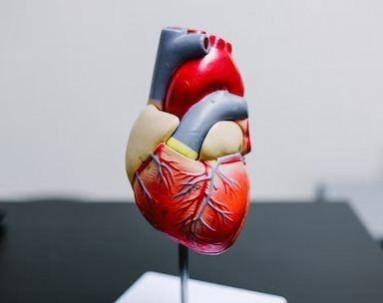"Well, some studies show that moderate amount of alcohol is good for health," almost everyone with a drink in hand have often used the loosely-cited phrase to argue with teetotallers.
So is moderate amount of alcohol really good for the heart? Or health for that matter? In one of his recent posts, a hepatologist and columnist Dr Cyriac Abby Philips bursts the bubble, decodes the studies concluding such benefits and highlights the cautionary riders and fine print they all came along with in the first place.
"Every week I sign off death summaries of young and middle-aged men with liver dysfunction, multiple organ failure and liver cancer due to alcohol use. Some of them drank heavily –almost 1000 to 1200ml/day while others consumed alcohol modestly – from 200 to 400ml/day," he starts off. "Some of my patients felt cheated. They drank with their friends and most of their friends drank much more than them but they were still healthy and productive, while my patients were either on death bed or waiting for a liver transplant."

Studies advocating mild to moderate drinking
Perhaps one of the first studies in popular culture to conclude alcohol consumption as beneficial in moderate quantities, was the one by Biologist Raymond Pearl in 1924. In the study, the J shaped curve projected alcohol consumption as beneficial in 'moderate' quantities versus no drinking. Adds Dr Philips, "In it, he concluded that the effect of alcohol use followed a J-shaped curve, where to the left of the tipping point of the J were non-drinkers who survived much lesser and to the right were those who drank more than modestly and had increased death rates. So, the key to increasing life was to drink 'moderately'."
![New Test Catches Liver Cancer Early [representational image] Abdominal pain](https://data1.ibtimes.co.in/en/full/410573/abdominal-pain.jpg?w=499&h=364&l=50&t=20)
Here comes the fine print
But why where they surviving better with modest use of alcohol versus heavy amounts of or no alcohol? Further research on the subject discovered that one particular type of heart disease reduced with alcohol-use called ischemic heart disease. The 2013 study in question was conducted on individuals in Siberian region had a sample size of 1628 individuals aged 25-64 years.
But how was ischemic heart health connected to modest alcohol use?
The hepatologist cites yet another recent finding on the subject. A 2023 study conducted by a group of doctors from Massachusetts General Hospital found that the reason was alcohol promoted long-term reductions in stress signalling in the brain leading to happier/healthier heart. "And this was shared and cited by so many news media and on social media." Reinforcing the above findings, yet another study showed, "lower stress reduction was happening even at the molecular and cellular level (manifested by a reduced microvascular dysfunction) where blood health improved with modest alcohol consumption."
What they do not tell you?
Digging deeper into the hows and whys of favourable health benefits and modest alcohol use, adds Dr Philips, "A large study showed that health benefits were because people with lower/modest consumption also had better and healthier lifestyle, such as dietary patterns and physical activity." Importantly, when these were taken out of the equation, lower doses of alcohol increased heart disease risk which increased exponentially with increasing dose and duration.
The study to take seriously!
The above study, "a cohort study of as many as 371 463 individuals said that genetic evidence supported a non-linear consistently risk-increasing association between all amounts of alcohol consumption and both hypertension and coronary artery disease."
Everyone at risk until proven otherwise!
Adds Dr Philips, "More recent studies suggest that association of low-to-moderate alcohol consumption with the reduction in cardiovascular risk is a result of lifestyle changes and that any reduction in alcohol consumption in in fact beneficial in terms of general health. And quite interestingly, on those with worse health outcomes with low or modest consumption, genetic profile also played a role. If you did not have good genes, any amount of alcohol was going to harm you.

Now who are blessed with good genes?
Before those with generational pride and history of alcohol consumption jump to defend themselves or identify themselves as the one with 'good' genes. Says Dr Philips, "The best way to protect yourself is not consume alcohol at all, because even now the "good" genes are not yet fully identified (and probably never will be because it does not matter in the big picture). So, everyone is at risk until proven otherwise."
Little unproven good or definite great harm?
Eventually the doctor puts across both sides of the picture on the table. "While light/moderate drinkers lowered their risk of ischemic heart disease, the 2023 Massachusetts General Hospital study also showed that any amount of alcohol increased the risk of various cancers and hence increased chances of cancer-related death even when you have a "supposedly healthy heart."
Continues the threat, "This was again proven this year---a large systematic review and meta-analysis, the highest grade of quality for evidence generation in medical science that "low volume alcohol drinking was not associated with protection against death from all causes," and that it increased risk more in women than men." There is no dearth of studies wanting to prove the benefits of alcohol. "Then there was this study that showed that people with modest alcohol use gained one whole year in their lifetime. Oh super! It's time to be merry. Sorry to burst your bubble again, but the gain of one year by modest drinkers was erased by a two to fourfold increase in mouth and food-pipe (esophageal) cancer and that drinking beyond modest amount led to a large loss of life expectancy. And to top it all off, like placing a rotten black cherry on top of alcohol connoisseurs' happy cake, scientists again proved that any level of alcohol was unsafe because it increased risk of cancers like hell," signs off with the doctor with a large warning sign in flaming red for whoever cares to pay heed.
The debate of course between alcohol-loving populace and teetotallers continues.
Make this your must read for the day.
— TheLiverDoc (@theliverdr) July 4, 2023
You will thank me and curse me in the same breath.
Every week I sign off death summaries of young and middle-aged men with liver dysfunction, multiple organ failure and liver cancer due to alcohol use. Some of them drank heavily – almost… pic.twitter.com/JInlx4L1lc








